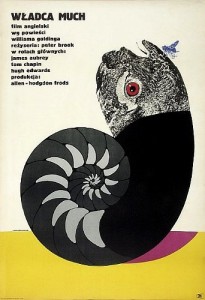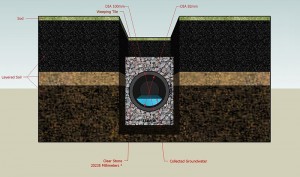We’ve all seen them, the little openings to nowhere that occasionally slash the side of a new roadway or a newly-widened old one. They’re usually placed in front of cow pastures or other open space, then the bit of formed concrete suddenly gives way to dirt, grass, a ditch then a fence. Many, many of these will now go abandoned, giving a certain circular echo to the once-presumed opportunity in the emptiness. What they are – what they were – are placeholders for a future entrance to a development that is not there yet but one day will be. The one day that’s coming when we will call these relics ‘green markers’ or ‘option stops’ or some such term indicative of the serious moment that crops up when we temporarily get post-irony, again. ‘Starting in the low 300’s’ indeed.
Some might say that one day is here; no one made the announcement but this dog whistle sounds a lot like the trillion-dollar insurance company investment we and our adjacent progeny all just made. These little ciphers in the road to our past should be memorialized as markers for our stupidity, little DOT-sanctioned homages to the greed that once controlled how and where we once lived. I use the past tense because they are over. Finit-O®.
Though this is the end to neither greed nor stupidity. So stipulated. It is only the end of the way this powerful combination once dictated how we lived. Suburbs, gated enclaves only accessible by private vehicle and situated far from an interaction with and vulnerability to other people – also known as life – are things of the past.
Yes, come and play Finit-O®, that fun game where we bid farewell to an entire set of tenets and beliefs predicated on short-term individual comfort but revealed as the path to long-term collective agony, celebrated with curb openings to non-existent suburbs and lionized beneath crumbling gates to exclusivity and literal isolation. And these are not just funparks but monuments to serve as a constant reminder of the greed and stupidity that permitted us to forget our priorities in good times, to elect and re-elect those for whom pillaging earth and man was a preference. Ah, look familiar? That’s because it’s already been different for a while as we’ve entered the end of the beginning of the end… of the beginning. (Almost had you there! Everyone wants to KNOW.) We’re even becoming wise to many of the shades of green.
So… who’s in charge of this grand transition, you might ask? Mobile one to home base – come in, home base.




